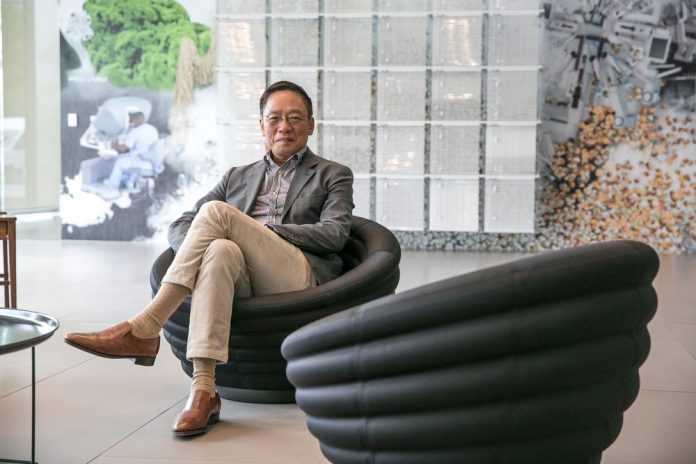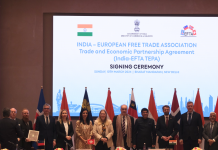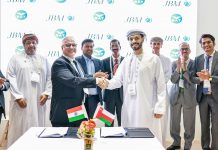(Bloomberg) — Ted Chung, chief executive officer of Hyundai Capital Services Inc., expects the shock wave from the coronavirus pandemic to hit the company later this year as government relief funds dry up and late payments and defaults rise.
But despite the troubling outlook, Chung, 60, says he has no plans to alter his ambitions to turn the company into a global financial powerhouse by expanding overseas and growing the business beyond auto financing and consumer lending.
“Hyundai Capital has so many places to go and coronavirus wouldn’t change that at all,” said Chung, who has been working for South Korea’s second-largest chaebol since 1987 and is the son-in-law of billionaire Hyundai Motor Group Chairman Chung Mong Koo. “We’re just taking coronavirus as part of our life. We’ll keep marching.”
What started as the financing arm of Hyundai Motor Group is making significant strides in the global market, with its combined overseas financial assets increasing to a record $41 billion in 2019, nearly double its domestic assets. Hyundai Capital is already the largest consumer finance company in South Korea.
Hyundai Capital’s plan in Europe includes expanding into Spain and Italy, leveraging its recent purchase of Sixt’s auto leasing unit in Germany. Hyundai Capital Bank Europe, a joint venture between Hyundai and Santander Consumer Bank AG, is acquiring Sixt Leasing SE for at least 156 million euros (about $170 million).
Challenging Environment
It is also considering further boosting its operations in India and Australia, Chung said in an interview in Seoul. Chung said he may eye other potential acquisitions after focusing on the expansion of the German leasing company.
Hyundai Card Co., the credit card unit and South Korea’s fourth-largest, will also jump on the globalization move as it will complete preparations in the first half of this year for its planned initial public offering, which could happen sometime this year or next year, depending on shareholders’ sentiment, Chung said.
Still, Chung’s ambitions for global expansion will be challenging. Hyundai Motor Co.’s overseas sales are falling as auto companies face high exposure to the demand shock and supply chain disruptions due to the pandemic. S&P Global Ratings and Moody’s Investors Service have placed the credit ratings of Hyundai Motor Group including its financial units on review for downgrade.
Overseas expansions may help raise the company’s profitability and growth potential, but they could hurt its financial stability if aggressive, which will need to be monitored, said Yeil Kim, an analyst at Korea Investors Service Inc. in Seoul.
While the impact of the virus on Hyundai Capital has been small so far, the company is bracing for “real damages,” such as higher delinquencies or write-offs, with many people losing their jobs or suffering from their businesses, Chung said. That could happen as early as August, about six months into the virus outbreak.
He said, however, that the impact could be “delayed or partially neutralized” as governments in many countries hand out cash to those hit by the virus outbreak. Surprisingly, the delinquency rate in Korea is actually going down, he said, which might have benefited from the government measures.
Safety First
As Chung expects economies to recover from the virus hit — resembling something between “V-shaped” and “L-shaped” — he plans to secure liquidity as much as possible even at higher cost.
Hyundai Capital America sold $1.8 billion of bonds in a three-part-deal last month. The company offered a three-year note at a spread of 550 basis points, compared with 95 basis-point premium for similar bonds sold in February. In normal times, he said he would never accept such prices, but he took it given the volatile market.
“When it comes to funding, there are two things primarily — safety and price,” he said. “Safety means that you build up your cash reserves, but also you want to pay the right price. So in normal days maybe we say fifty-fifty. Now, we put 70% to safety.”
Chung says the company is also increasing its focus on “data science.” Hyundai Card created a big data analytics tool after analyzing spending patterns of its credit card customers. The company provides access to the data analytics to its business customers who can use it for improving their marketing and providing better services, he said.
To Chung, Hyundai Capital is more than just a staid finance company. He invited British rock band Queen for a concert held by Hyundai Card in January after the success of biopic film “Bohemian Rhapsody“ in Korea in 2018. The company also has various design projects including Bongpyeong market project in Korea’s Gangwon province to revitalize traditional food markets.
Chung says his goal is to turn Hyundai Capital into a “global digital company” for lack of a better description. In the new age of globalization, the threat of alternative upstarts is bigger than ever in finance, so he says the company competes with not just other credit card companies or banks but with technology companies such as Apple Inc. and Samsung Electronics Co. with their digital payment services.






